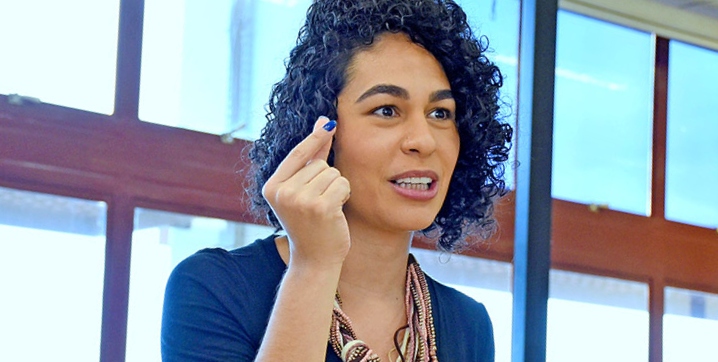
 Recognition
Recognition
T&B Petroleum/Press Release

Professor Sandra Avila (photo), from Unicamp's Institute of Computing (IC), was chosen to represent Brazil at the Young Scientists Forum of the group of countries Brazil, Russia, India, China and South Africa (BRICS). The Forum reaches its fifth edition in 2020, bringing together prominent researchers from the five countries with the objective of debating society's challenges and how to solve them through research and innovation. Sandra was nominated by the Brazilian Academy of Sciences (ABC) and will represent Brazil in the field of Artificial Intelligence.
In the fifth edition of the event, which takes place in September, three thematic axes were chosen for discussion by scientists: Ecology; Material Sciences and Artificial Intelligence. For each axis, five researchers are chosen, one from each BRICS country.
Sandra points out that she happily received the news of her nomination and choice for the Artificial Intelligence area. “I was very happy and I also felt a responsibility to be representing other people, so I will try to represent in the best possible way. We have a lot of innovation going on, a lot of research, there will be plenty to talk about what we are developing here. Nobody achieves anything alone. So, if I am representing Brazil in the BRICS, it is because I had and I have excellent people at my side, both from the family and the professional side. I am extremely grateful and honored for that ”.
She comments that, on the Artificial Intelligence axis, eight points of relevance will be discussed among colleagues. "In the health area, which is the area where I work, one of the topics is artificial intelligence in this area, how to improve processes, diagnostics", he says. One of the researches the professor is currently engaged in is diagnosing skin cancer. Together with other colleagues, Sandra developed software that, based on images of skin lesions, is able to make an accurate diagnosis.
In addition, the topics in general, according to Sandra, are of great interest and have an interconnection with what is being done in Brazil in terms of research. “Many of the things I am seeing are in these topics, both from the point of view of technique and application. In agriculture, for example, there is a concern about how we are going to produce food cheaper and more sustainably, with energy savings and on a large scale. Another point is related to fake news ”, he observes.
The teacher, who is also dedicated to the greater insertion of women in the areas of technology and computing, as in incentives for girls in the field of programming, also comments on the importance of female representation at the event. “Many women and fellow scientists made a point of saying about the importance of having a woman representing Brazil when they heard of my nomination. The fact of being there at the event can show that they can be there too. This is also very relevant ”, he observes.
Contact us